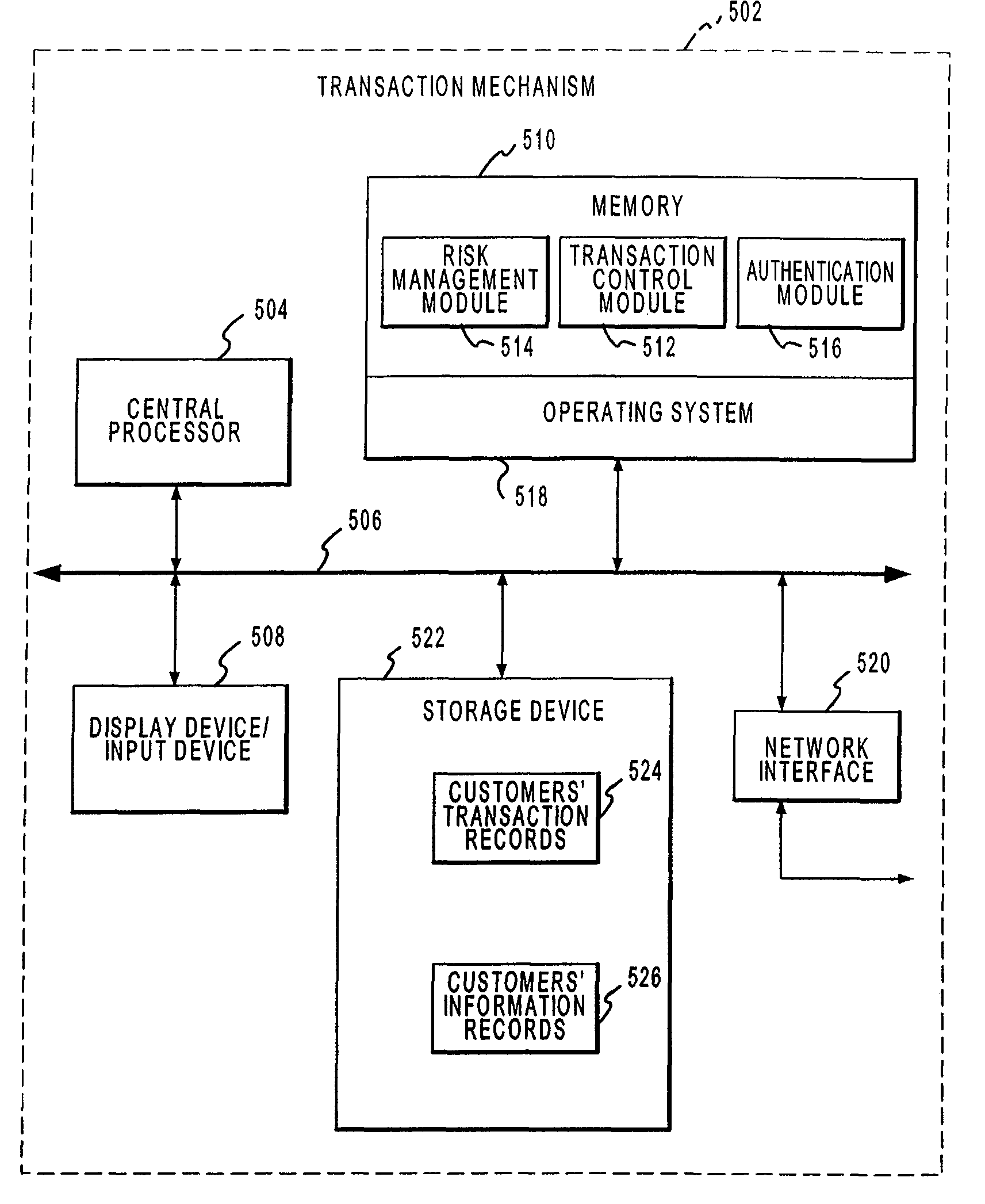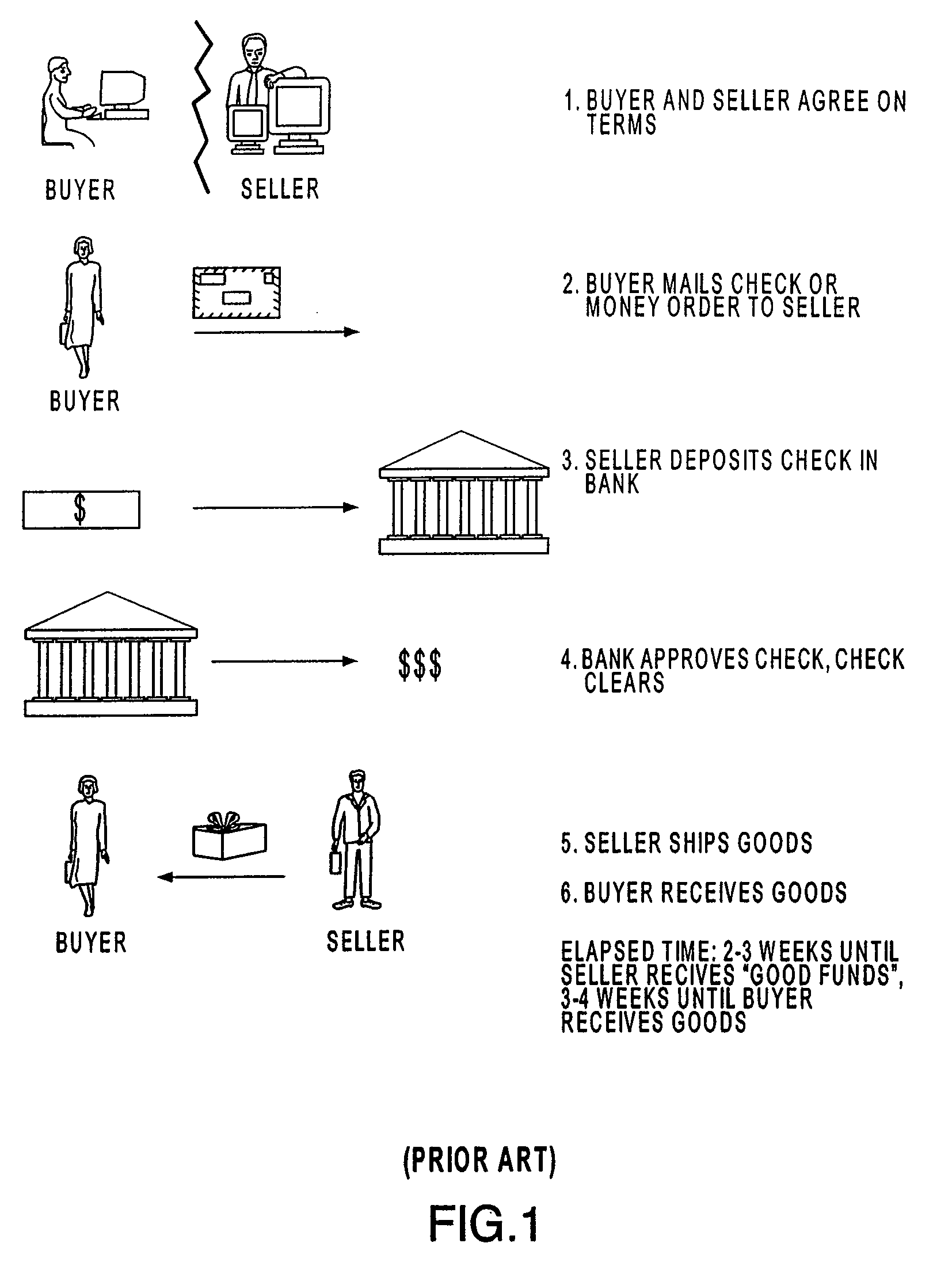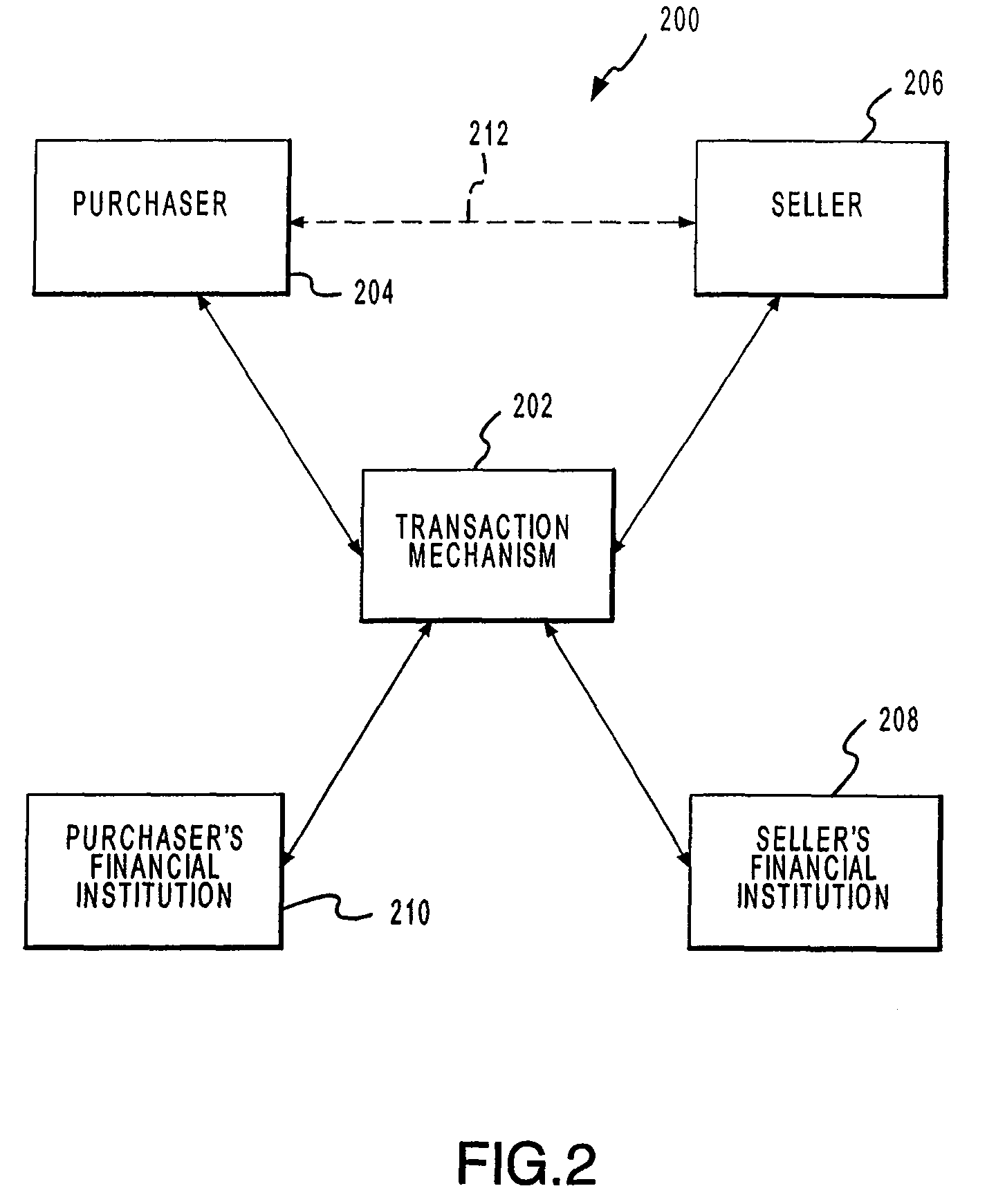Thus, the Internet represents an opportunity for the exercise of unparalleled
consumer purchasing power.
However, a number of hurdles impedes the typical Internet user from engaging in a variety of online transactions and, therefore, from effectively leveraging this
purchasing power.
As the number and scope of transactional opportunities available to
Internet users expand, individual users seeking to
exploit these opportunities are squarely confronted with the significant challenge of transferring and receiving
monetary value online, regardless of whether the transfer and / or
receipt of
monetary value culminates in an online sales transaction or whether it effects a simple funds transfer between individual users.
While the Internet has become an extraordinarily efficient mechanism for the
dissemination of information, the development of effective, secure means for engaging in online transactions for value has proved problematic and has been a significant factor in slowing the acceptance and growth of e-commerce.
However, many individual
Internet users are acutely aware that the transmission of
credit card numbers over the Internet carries the risk of theft from unscrupulous computer hackers and thieves who have the ability to tap into servers connected to the Internet.
Nevertheless, this latter approach is generally cumbersome,
time consuming, and commonly perceived as troublesome to the average Internet user.
Moreover, none of these methods, either online or off-line, sufficiently addresses the logistics involved in satisfactorily coordinating both the transfer of
monetary value from a first user to a second user and the transfer of goods, services, or other value from the second user to the first user.
Another hurdle that often impedes widespread acceptance of commercial transactions between individual
Internet users is that, since the Internet facilitates remote person-to-person communication, most online transactions suffer from a tenuous connection between the parties to the transaction.
For example, unlike the experience provided by conventional ‘
brick and
mortar’ stores, in the case of a typical online transaction involving the purchase of goods, online purchasers generally do not interact personally with sellers and often do not receive the same level of customer service due to the nature of the seller involved in the transaction, as well as the character of Internet communications.
Although purchasers and sellers occasionally can communicate effectively either online or by telephone, purchasers often cannot examine the quality of the goods that they are interested in
purchasing.
Frequently, an individual purchaser's inability to inspect the goods prior to remitting
payment and / or the purchaser's lack of knowledge of the seller's integrity, in conjunction with other factors, creates sufficient apprehension in a purchaser's mind to derail an intended online purchase.
Moreover, even if an individual purchaser overcomes an initial hesitancy and decides to engage in a online transaction with an individual seller, the nature of the transaction is such that the purchaser generally has little recourse in the event that the seller fails to deliver the goods or services as promised or that the goods or services are damaged or otherwise misrepresented.
Furthermore, using conventional means for transferring currency between individuals, a seller may not receive financial tender until two to four weeks after performance of a service or shipment of the goods to the individual purchaser.
Moreover, since a seller frequently has inventory costs associated with the particular goods offered for sale, this can result in the loss of valuable interest, pending the arrival of a
payment through the mail and / or
sufficient time for a
bank deposit of that
payment to clear the seller's
bank account.
Furthermore, in the case of an online seller who is not a large merchant and who generally is not capable of accepting
credit card payments, the ability to engage in a particular transaction with another Internet user may necessitate that the seller enter into an agreement with a
credit card issuer to enable the seller to receive monetary value from the other Internet user.
Not only are such agreements
time consuming and costly, but conducting a
financial transaction in accordance with such an agreement often requires the seller to communicate confidential information, such as credit card numbers, to third parties, such as credit card issuers, thereby risking the security of the confidential information.
Although alternative payment schemes, such as digital money systems (e.g., DigiCash, e-Cash, etc.) are readily envisioned, most are still in the early stages of development and no standards regarding their use have been established as of yet.
Significantly, the foregoing factors frequently adversely
impact an individual user's willingness to engage in online commercial transactions at all.
These losses may be due either to the individual seller's inability to process credit card transactions or to the individual purchaser's apprehension regarding acceptance of the risks associated with remitting online payments.
 Login to View More
Login to View More  Login to View More
Login to View More 


